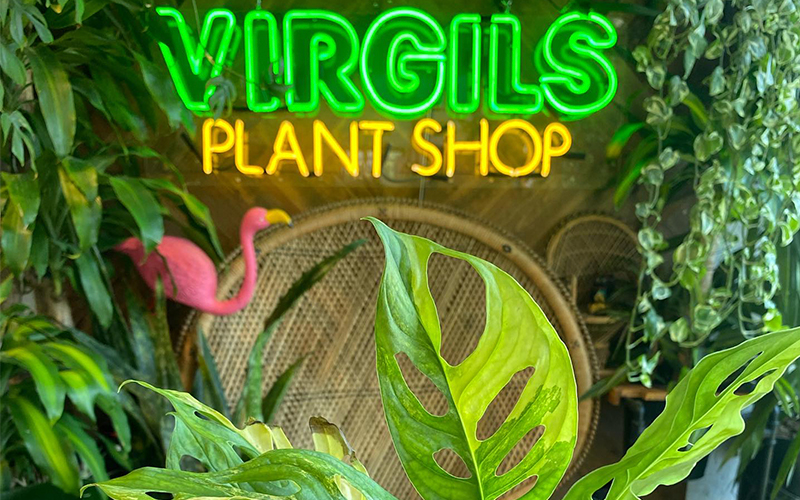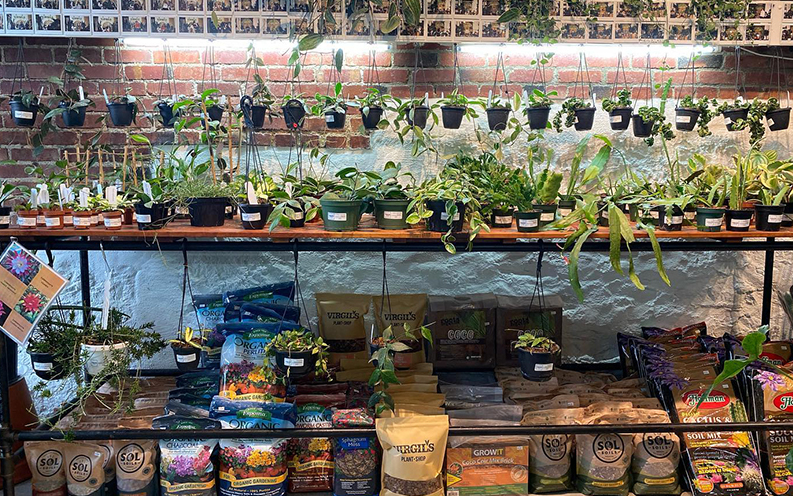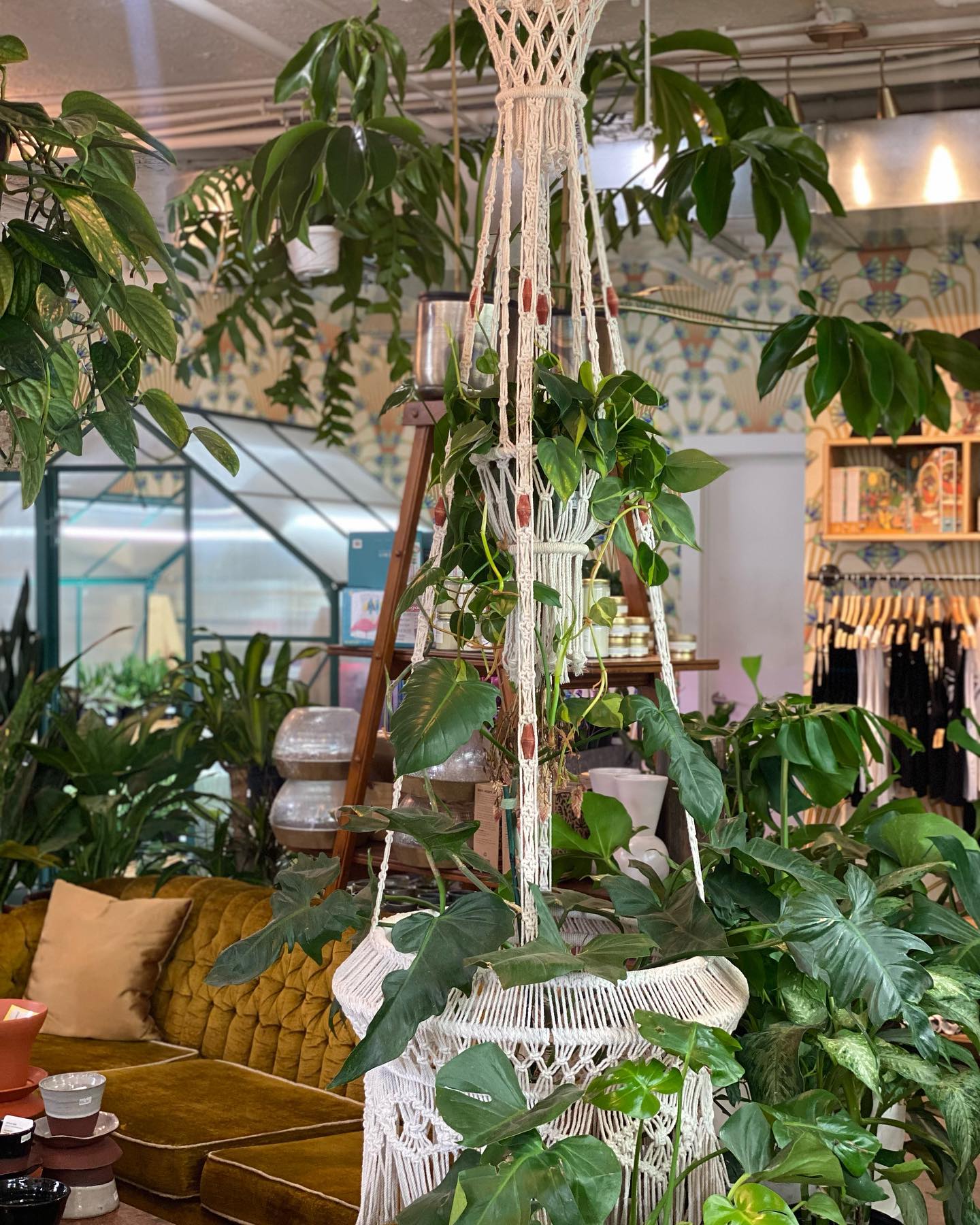
The greenery of Portland, Oregon, first sparked Reba Hamilton’s interest in plants. The Kansas City native remarks on the stark contrast between Midwestern foliage and what surrounded her in the more temperate Pacific Northwest. Now the owner of four-year-old Virgil’s Plant Shop, she moved from Portland to Brooklyn before returning to Kansas City.
Unsatisfied with the lifelessness of her small Brooklyn apartment, Hamilton collected plants from local bodegas before heading upstate, scouring boutique plant shops—connecting with one owner in particular. “I went up there pretty regularly to chat with her, learn how she got started, and glean information about all these different plants. It really opened up something in me,” she says. “I felt like this was something I could do—that I would want to do.”

Hamilton returned to Kansas City to spend time with family and build her business—first came the plant bus. “Because I’d been gone so long, I thought, well, what’s a good way to get to know the community again? I thought doing a little mobile shop would be the best way—I could pop up around town and set up anywhere.” Since then, Virgil’s expanded into a brick-and-mortar storefront, but pop-ups remain an important part of the business.
“I really do love popping up at other local businesses because it’s important to maintain relationships between small business owners,” she says, with pop-ups at local spaces like Black Dog Coffeehouse, Three Bees Pottery & Coffee, and Heirloom Bakery. Virgil’s also sponsored senior dogs for adoption at KC Pet Project in honor of the store’s namesake, Hamilton’s 11-year-old border collie and boxer mix.
Virgil’s storefront opened at the beginning of the pandemic; timing Hamilton first thought would be a nightmare. Fortunately, people’s demand for houseplants soared. “During those first six to eight months of COVID, I was making deliveries all over town,” she says. “And I feel like it was bringing a little bit of joy to people who felt trapped inside.”

Virgil’s slogan is: “Your Neighborhood Plant Shop” and Hamilton works to keep that atmosphere alive for her customers. “The biggest thing I’ve always wanted from the very beginning is to have a warm, open, welcoming space, where people can ask any question that they want, whether it’s: what is a plant? Or, you know, do plants need sun? And we’ll be like, ‘Heck yeah, let’s talk about plants.’” Customers are encouraged to send Instagram messages or text the shop number for questions about plant care. “We don’t ever charge to ask us questions,” she says. “You can send pictures and say, ‘Hey, what am I doing wrong?’ If we don’t know the answer, that’s an opportunity for us to learn.”
What’s next for Virgil’s? Hamilton explains her growing collection of rare plants. “Folks were coming into the shop like, ‘Well I have all these, these are all so common.’ And so I said, ‘Alright, giddy up.’” She even added a running request book for customers who are on the hunt for something specific. But the approachability of Virgil’s will always remain priority number one.

Plant Recommendations
Hamilton loves the mental boost of having plants around but cautions that one or two houseplants likely won’t make a huge difference in air quality. “You’ll need quite a few,” she says. How many plants are too many? “That depends on how much work you want to give yourself, and how much you feel like you can do,” Hamilton says. “For me, I have, like, over 100 at my house.”
Snake Plants
Easy, low-light tolerant, but they also do well in bright light. These versatile plants can thrive on neglect, which makes these a low-maintenance winner for beginners.
Porthos Philodendron
Good air cleaners and can handle a variety of light levels (but a little brighter is always better). These plants are great communicators—they weep when they’re thirsty.
Peace Lilies
Another good communicator, this low-light tolerant plant is known for being easy to care for as well as adding a boost to your air purification efforts.
Spider Plants
Adaptable to almost any indoor environment, these air-quality boosters will tolerate lots of neglect—just don’t overwater.


